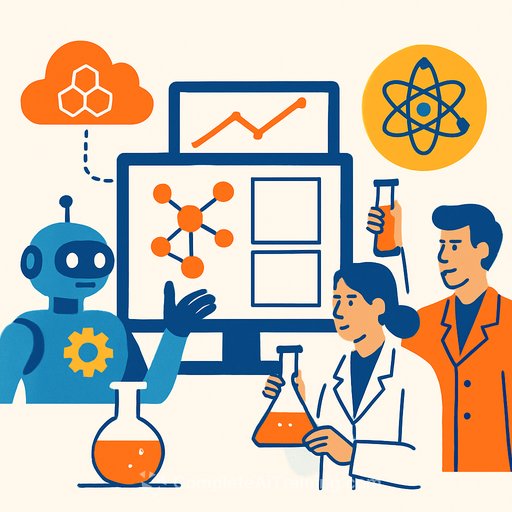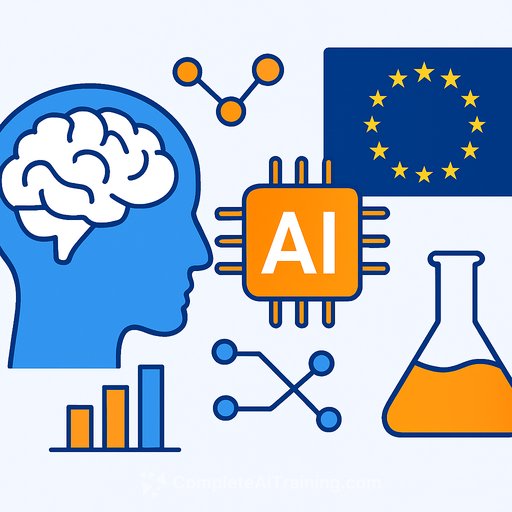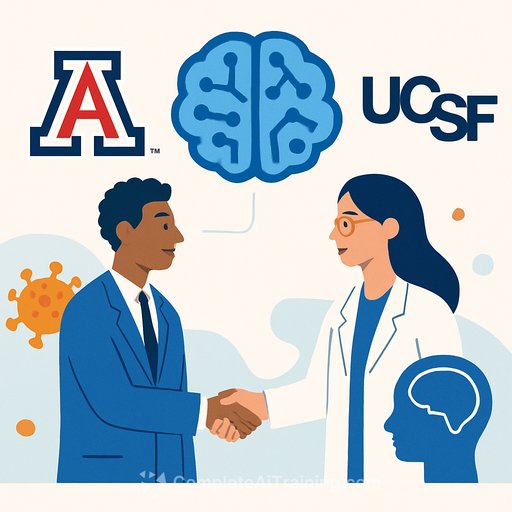Royal Society of Chemistry Awards 2025 Horizon Prize to International Team Including Argonne National Laboratory Members
Scientists from the U.S. Department of Energy’s (DOE) Argonne National Laboratory have joined an international team honored with the 2025 Royal Society of Chemistry’s Materials Chemistry Horizon Prize. This award recognizes their pioneering work in chemistry-aware artificial intelligence (AI) software that accelerates materials discovery.
The collaboration includes researchers from Argonne, the University of Cambridge, STFC Rutherford Appleton Laboratory, the Australian National Science and Technology Organisation, and partners worldwide.
Álvaro Vázquez-Mayagoitia, a computational scientist at the Argonne Leadership Computing Facility (ALCF), emphasized the value of this collaborative effort: “This recognition highlights years of dedicated work at the intersection of chemistry, AI, and computing. Our team developed essential tools that are now widely used by researchers globally.”
Advancing Materials Chemistry with AI
The team created open-source materials databases and language models that serve as critical resources for scientists. Under the leadership of University of Cambridge Professor Jacqueline M. Cole, the group made strides in designing organic dye-sensitized solar cells and advancing technologies for solar energy capture.
Professor Cole stressed the importance of partnership: “Research is a collaborative endeavor. This award acknowledges the entire team and the unique value of combining efforts across scientific government entities and universities. Together, we achieved tangible and useful results.”
Impact of the Award and the Team’s Work
The full 89-member team received certificates recognizing their contributions. The Royal Society of Chemistry honored their development of AI-powered tools that simplify and speed up the discovery of advanced materials. Their open-source software helps researchers analyze large datasets and simulate chemical properties efficiently.
These tools transform materials discovery from a trial-and-error process into a streamlined, rational pathway, cutting down the time from initial molecule design to market-ready applications.
The team, spanning five continents, developed databases, machine learning models, and simulation workflows that are already influencing materials design. Vázquez-Mayagoitia noted, “Professor Cole’s leadership has inspired scientists across academia, government, and industry to achieve high-impact outcomes.”
Role of Argonne Leadership Computing Facility
Vázquez-Mayagoitia supported the project at the ALCF, a DOE Office of Science user facility. His role involved facilitating large-scale simulations and data analysis. The team built codes and scripts to rapidly generate a comprehensive dye database combining experimental and simulated data.
The approach used a high-throughput, automated workflow that integrated data mining, machine learning, and quantum chemistry simulations. Nearly 10,000 organic dyes were evaluated by screening for key properties such as molecular structure, polarity, and light absorption, eventually narrowing the list to five top candidates.
Professor Cole highlighted the importance of specialized computing resources: “We needed one of the best supercomputers in the world, and the ALCF provided that. This enabled fast, detailed, and comprehensive AI predictions, which were essential.” Lab experiments and device testing confirmed these predictions.
This project demonstrates how AI combined with large-scale simulation can significantly reduce the timeline from material design to functional technology.
“The AI tools we built function as a platform technology,” Cole added. “We are already applying them to other fields such as magnetism, batteries, and optoelectronics.”
Argonne National Laboratory Team Members
- Paul Coffman, Argonne Leadership Computing Facility
- Jeffrey Elam, Applied Materials
- Adrian Pope, Argonne Leadership Computing Facility
- Liliana Stan, Center for Nanoscale Materials
- Álvaro Vázquez-Mayagoitia, Argonne Leadership Computing Facility
- Venkat Vishwanath, Argonne Leadership Computing Facility
- Angel Yanguas-Gil, Applied Materials
Several former Argonne researchers also contributed to the project.
About Argonne’s Center for Nanoscale Materials
The Center for Nanoscale Materials is one of five DOE Nanoscale Science Research Centers (NSRCs). These premier national user facilities support interdisciplinary nanoscale research with advanced capabilities to fabricate, process, characterize, and model nanoscale materials. The NSRCs represent the largest infrastructure investment of the National Nanotechnology Initiative and are located at DOE’s Argonne, Brookhaven, Lawrence Berkeley, Oak Ridge, Sandia, and Los Alamos National Laboratories.
For more information about the DOE NSRCs, visit the DOE website.
About the Argonne Leadership Computing Facility
The ALCF offers supercomputing resources to the scientific and engineering community to drive discovery in various disciplines. Supported by the DOE Office of Science’s Advanced Scientific Computing Research program, the ALCF is one of two DOE Leadership Computing Facilities dedicated to open science.
Argonne National Laboratory conducts leading-edge basic and applied research across scientific disciplines to address important national challenges. Argonne is operated by UChicago Argonne, LLC for the DOE Office of Science, which is the largest supporter of physical sciences research in the U.S.
Your membership also unlocks:






